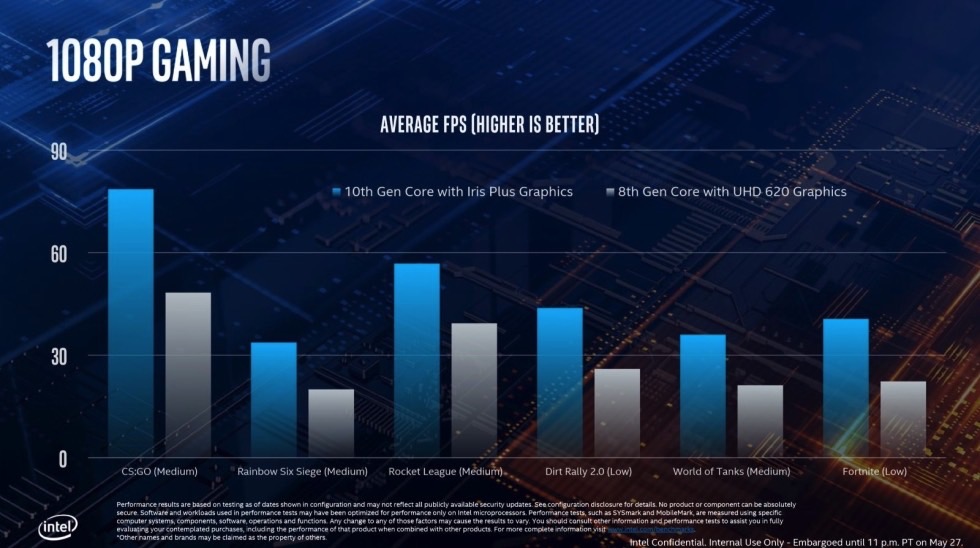Playing games on laptops that are as thin as the MacBook Air is about to get even better soon, and that’s not only because some companies are getting ready to export all that heavy graphics processing power to the cloud rather than your machine. Chips that power ultraportable laptops, the ultrabooks, just got a lot more powerful, according to Intel, especially in the graphics department. And it doesn’t hurt that Intel’s 10nm chips, which we’ve been waiting for so long, are the ones supposed to deliver the extra boost in performance, gaming included.
Codenamed Ice Lake, the 10th-gen Intel Core processors are also the first to be based on 10nm architecture. They’ll power many ultrabooks later this year in Core i3, i5, and i7 variants. In addition to Intel’s new Sunny Cove architecture, the chips are also paired with a new Gen11 graphics engine. We’re looking at chips featuring up to four cores and eight threads, and up to 4.1GHz max frequency, as well as up to 1.1GHz graphics speed.
The new Intel Iris Plus built-in graphics card is what will bring decent 1080p gaming to laptop form factors that wouldn’t otherwise support it. Intel’s slide below makes it clear that the 10th-gen processors will do a much better job than the 8th-gen Core chips with UHD 620 graphics when it comes to several popular titles, including Fortnite, CS:Go, World of Tanks, and others. Mind you, Intel’s new chips won’t turn ultrabooks into gaming laptops. If you want a more solid portable gaming rig, you’ll still have to opt for a much thicker laptop packing a more power hungry Intel 9th-gen chip.

The new 10th-gen Intel chips also bring over a few additional perks, including faster HEVC encoding, better 4K HDR content delivery, and Thunderbolt 3 and Wi-Fi 6 integration. In other words, ultrabooks aren’t just getting faster processors and graphics, but also speedier Wi-Fi, as long as your router supports it, and guaranteed built-in Thunderbolt ports.
Separately, but related to the new Core chips generation, Intel announced progress with the Project Athena initiative, the project that’s meant to ensure that notebook vendors create faster laptop experiences and adhere to the same standards when it comes to speed, reliability, and battery life.
Project Athena laptops are supposed to deliver excellent battery life, of at least 9 hours under real-world performance conditions, system wake from sleep in less than one second. It’s unclear what the first Project Athena laptops will be, but the company says it’s currently deploying the 1.0 target specification, and partners including Acer, Dell, HP, and Lenovo will have them in stores in the second half of the year. Hopefully, those designs will pack the new 10th-gen Intel Ice Lake chips as well. Intel expects some 30 Ice Lake-based designs this holiday season, although we don’t have specific product names for you at this time.








